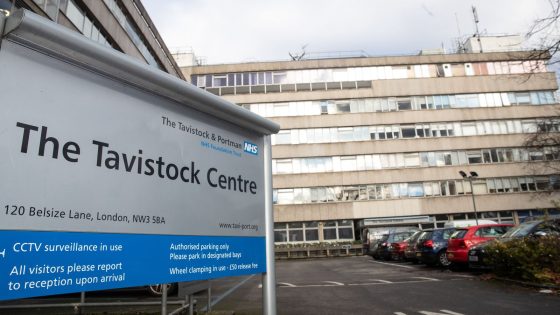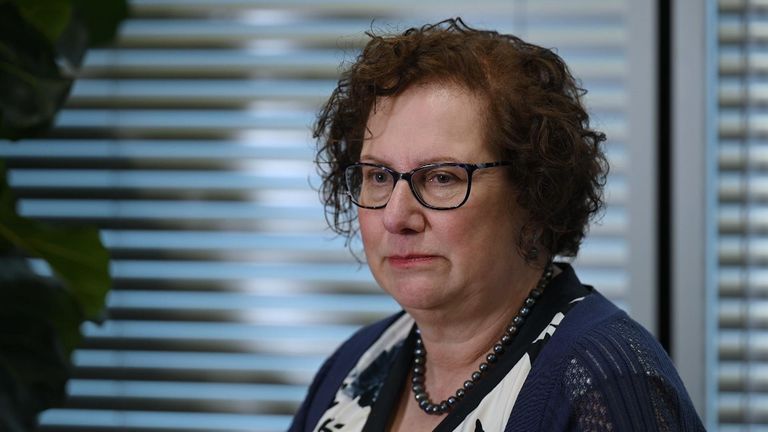A former nurse has told Sky News it felt “completely wrong” to hear medics agree to send a child to a hormone clinic after four assessments at her gender identity clinic.
Sue Evans, who worked at the Tavistock and Portman NHS Foundation Trust’s now-shut Gender Identity Development Service in northwest London, said she was “alarmed” by the speed of the decision.
She spoke as a long-awaited report said children are being failed by gender services, with NHS England now pausing first appointments at adult clinics for teenagers under 18 as a result.
Children have been let down by a lack of research and evidence on medical interventions in gender care, the report by Dr Hilary Cass said.
Ms Evans referred to her time at the Tavistock trust and said there are “all sorts of things” that can be done before prescribing hormones.
“I just became very surprised because I was sitting in a clinical meeting and I heard a physician say that after four assessments, they were going to send a child off to the hormone clinic,” she said.
“I was shocked, it felt completely wrong. I’d heard the background of the child in our meeting and it was complex.”
There are adults who feel they were right to take hormones, she added, but there is no way to differentiate between children “who will live to regret this decision” and those who might not.
“You cannot make an accurate assessment,” she said.
Read more:
What gender treatments are currently available to children?
Ms Evans believes it is a “medical scandal” and that there are “several bodies that have allowed the political ideology to influence ordinary, good medical clinical care and safeguarding for children”.
“The difficulty is that with a lot of the children I meet, they’ve read online… it’s like a rhetoric: ‘if you feel like this, this is what the answer is, you must be trans, if you don’t get the treatment you might commit suicide’.
“[This] is something I think children and parents have been terrified with.”
She added: “Every other area I’ve worked in, in mental health – eating disorders, OCD – you don’t just tackle the symptoms.
“You don’t ram food down an anorexic patient’s throat or stop people from cleaning. You try to understand it.”
Lauren Stoner, chief executive of transgender youth support charity Mermaids, said it is “very difficult to suggest” ideology is playing a part in treatment.
The group calls for the NHS to “resist pressures from those who seek to limit access to healthcare” and instead “act urgently to provide gender services which are timely, supportive and holistic”.
Two new regional hubs for children’s gender care opened earlier this month following the closure of the Gender Identity Development Service at the Tavistock and Portman NHS Foundation Trust.
Dr Cass said teenagers are “falling off a cliff edge” when they reach 17 – and warned ideology is directing care.
“I think it’s definitely the case that ideology on all sides has directed care, rather than care being directed by normal principles of paediatrics and mental health,” she added.
“I mean, certainly professionals are afraid to do the things that they would normally do in any other consultation with a young person, and that can’t be right.”
The “toxicity of the debate” is also not helping, with people afraid of discussing transgender issues openly, she said.
Dr Cass recommends “extreme caution” and “a clear clinical rationale for providing hormones at this stage rather than waiting until an individual reaches 18”.
Among the 32 recommendations was that a “follow-through service” should be put in place for 17-25-year-olds, with regional centres either extending the age range of their patients or through “linked services”.
The Tavistock trust has been approached for comment.
Anyone feeling emotionally distressed or suicidal can call Samaritans for help on 116 123 or email [email protected] in the UK. In the US, call the Samaritans branch in your area or 1 (800) 273-TALK
Source Agencies




